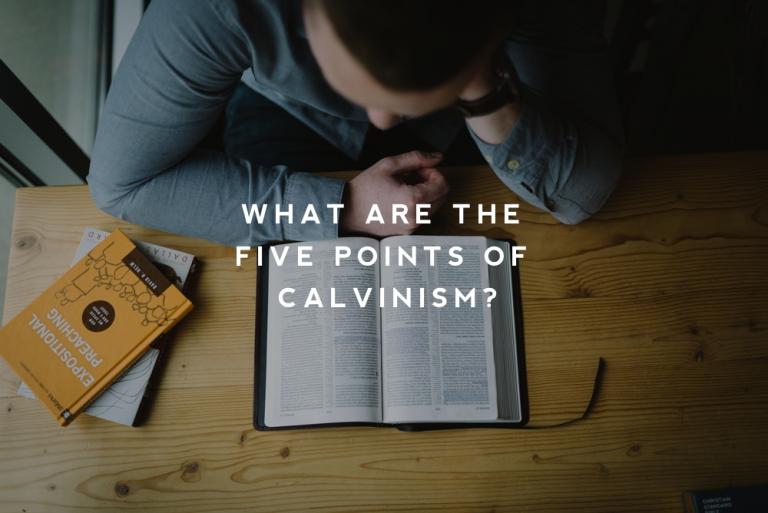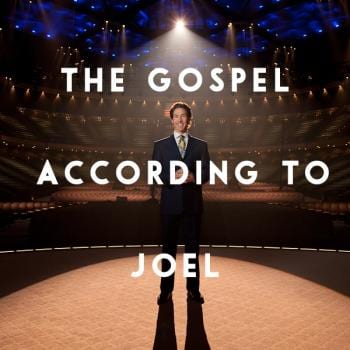What exactly do these new five points of Calvinism mean?

First, Reformed theology reads scripture and reflects on history in a unique way, different from other expressions of Christianity. Reformed theologians use covenants as a guide to understanding how the different pieces of the Bible fit together, how stories from very different times and very different places harmonize in God’s overall creation hope. A “covenant” is a contract, an agreement, a way of binding a person to their words. The “covenants” of God, then, are the different ways that God has bound Godself to the world and humanity. Calvinists say that God set up an overarching covenant, one covenant to rule them all, when God created humanity in the first place. This is the “Covenant of Works,” God’s promise to accept those who obey God. But, of course, humans don’t obey God, so more covenants were required. Then there is the Noachic covenant, named for the mythical man Noah who represents humanity as a whole. God promised to be a God of justice and wisdom to Noah, punishing humans when they kill one another and protecting the weak in danger of violence. This is the God of providence, God related to everyone, the god of the gentiles; those who believe in God and those who don’t. Then God made a covenant with a specific people within that broader covenant, the people of Israel, and promised to be their personal protector, their eternal provider, and their moral guide. This is the Mosaic covenant, expressed through the laws of the Old Testament. And, finally, God made the “new covenant in Christ’s blood” (Luke 22:20), to forgive the sins of all those people who worship and obey Jesus. This “Covenant of Grace” is the main counterpart to the “Covenant of Works,” and it makes up where we have failed in that original covenant. These, and more that I have left out for time’s sake, are concentric circles, one covenant based another former covenant and ever-narrowing down to smaller and smaller groups. And, depending on which covenant we find ourselves in, we are able to relate to God in different ways. That, in an overly simplified form, is what we mean by “covenantalism.”
Calvinists are also, and have always been, opposed to idolatry. That is, Calvinists have always fought against the restricting and restraining of God into paintings and statues of our own devising. We believe that to depict God, to paint a painting or sculpt a sculpture of the divine, is deeply offensive to God. Because the people of Israel “saw no form” on the mountain, they were commanded never to depict, from their own imaginations, God in physical form (Dt. 4:15ff.). Calvinists believe this command of God still applies today, that to depict God is to kill God. To kill the true god and replace God with a false god. Practically, this means Calvinists typically reject religious artwork. We love art itself, we love painting and sculpture and cinema, but we reject devotional artwork. It is all too easy to see an image of Jesus and have your heart warmed, to be moved with love and religious awe when we look at it. That is, to transfer our worship of the true Jesus to the Jesus of some artist’s imagination. As René Magritte has taught us, a painting of a pipe is not a pipe. Similarly, a painting of Jesus is not a Jesus. Much less is a painting of the Father the true god. And, when a not-God receives worship—devotion, awe, religious love—that is idolatry. “The Treachery of Images” indeed.
One point that Calvinists share with (almost) all other historic Protestants is belief in complete justification. Or, as it’s more commonly put, “justification by grace through faith alone.” This is, in brief, that when a person turns to Jesus—when they leave behind their life of sin and fall before Christ as a helpless sinner—they are forgiven. No questions asked. No restitution needed. No works of satisfaction, no fasting, no prayers, no pilgrimages. It is grace, and only grace, that saves.
A point that Calvinism shares with most Protestants is belief in the omnipotent providence of God. That is, that whatever happens in the world is in fact God’s will. Or, as it’s sometimes put—which is not much different—that nothing happens against God’s will. This is Calvinism’s most well-known point. And, as I wrote in another recent blog post, is perhaps modern Calvinism’s most foundational link to historic Calvinism. But, regardless, this is indeed an essential aspect of historic Reformed theology. Whatever happens, happens because God willed it. As the Didache, the oldest non-New Testament Christian document put it, “Receive everything that happens to you as good, knowing nothing happens without God.”
And, finally, Calvinists are a-substantiational. That is, we differ from Lutherans and Catholics over the nature of Christian rituals. Catholics believe that, as a second incarnation, Christ is made truly, physically present in the bread and win of the Eucharist: this is “transubstantiation.” That the bread really is Christ’s body, and that that body should be venerated and conveys real spiritual power, though the bread still tastes like bread. Luther wasn’t quite as specific as that, but he still believed that when we take communion, that we are really eating Christ’s body. For Luther, it was a mystery on how, probably something to do with Christ’s ascended omnipresence, but the fact remained: Christ’s saying “this is my body” ought to be taken literally. This is often called “consubstantiation,” because Christ is physically present with (“con”) the bread and wine. We Calvinists disagree. Though there is debate among Reformed people about what exactly happens spiritually when people take the sacraments, we all agree one thing: the eucharist is not the body of Christ. When we take communion, we are not eating Christ in any literal, bodily sense. Some of us, like myself, say that the sacrament is just a symbol to inspire our faith, a ritual that reminds us of Christ and Christ’s sacrifice. As Calvin wrote, “the Supper is given us as a mirror in which we may contemplate Jesus Christ crucified” (Short Treatise on the Supper of Our Lord) and “Here again the purpose of the Sacrament is made clear, that is, to exercise us in the remembrance of Christ’s death (Insititutes 4.C.33, 1536 edition). That nothing spiritual at all happens, except the “spiritual” encouragement gained by remembering Christ’s sacrifice and our own forgiveness. Other Calvinists say that something spiritual does happen, alongside just remembering Christ’s sacrifice, and they can claim some passages from Calvin and his successors as well. The essential point that differentiates Calvinists from Catholics and Lutherans here, though, is that our emphasis is on the fact that the rituals shape our minds and loves with repeated practice. Our focus is not on the bread and wine itself, or its physical properties. The focus is, rather, on the faith inspired by the sacrament and the grace that comes through that faith.
And that, friends, is Calvinism in a much truer nutshell than TULIP will ever be. Calvinism is not just about salvation. Calvinism is not just about predestination. Reformed theology is a complex, coherent system of doctrine. Calvinism may center on the sovereignty and unknowability of God, like Catholic theology centers around sacramentalism, but it is so much more than a wilting TULIP will ever express.
This post was written by Gerhard Stübben
Gerhard Stübben is a doctoral student at Baylor University, focusing on Calvin and the Reformation. Gerhard also cohosts The Reformation Podcast and Podcastica Patristica. You can get some of his books for free at Patristica Press.
Links:
NYT article: https://www.nytimes.com/2014/01/04/us/a-calvinist-revival-for-evangelicals.html
Another recent blog post: https://www.patristicapress.com/blog/calvins-one-idea
Calvinism may canter on… of God: https://www.patristicapress.com/blog/calvins-one-idea
Reformation Podcast: https://www.patristicapress.com/reformation/
Podcastica Patristica: https://www.patristicapress.com/podcasticapatristica
Patristica Press: https://www.patristicapress.com/free/












